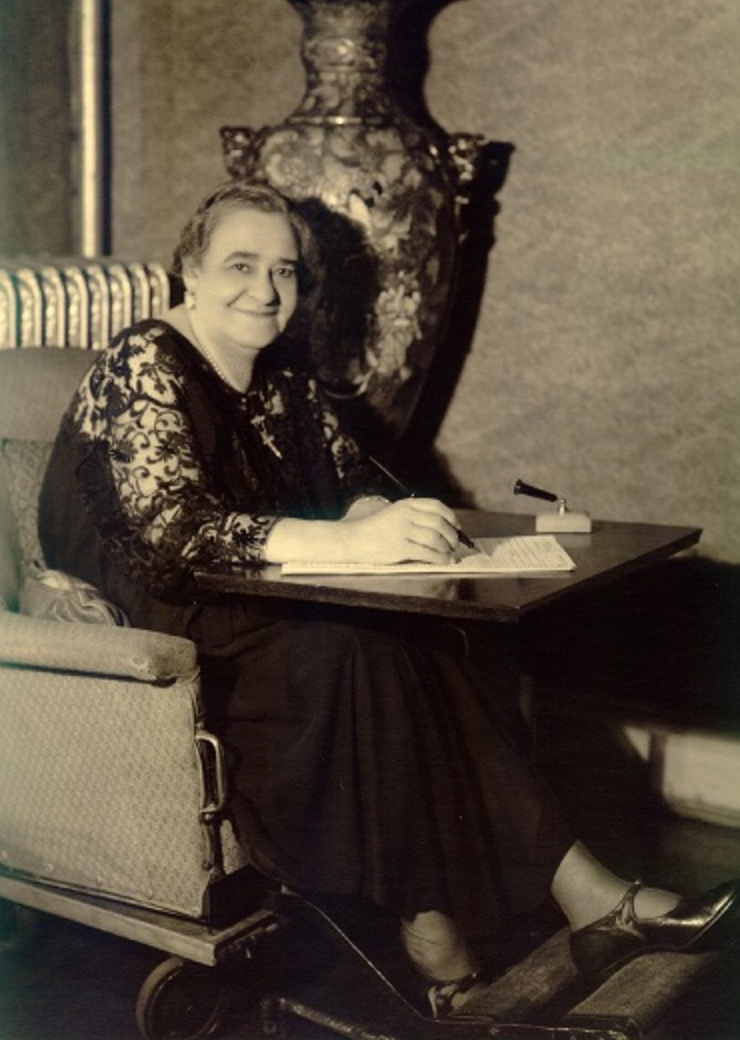Major Collection of Rare African American Archives Donated to National Park Service (NPS)
From the National Park Service:

A large, private collection of century-old documents from the desk of Civil Rights icon Maggie Lena Walker is now public, thanks to a generous donation from Margaret Stallings and family. The Stallings’ gift includes elements of Walker’s personal and professional correspondence as well as institutional records generated by the predominantly female office staff of Walker’s Black fraternal organization, the Independent Order of St. Luke (IOSL).
Spanning 40 linear feet, the tens of thousands of records in this trove nearly double Maggie Walker’s known written legacy. The counterparts to this collection have already been protected and preserved in the archives of the Maggie L. Walker National Historic Site, where they have fueled public scholarship over the past four decades.
“We are indebted to the generosity of Margaret, Wanda, and Ron Stallings for this incredible collection,” remarked Superintendent Doyle Sapp. “We are grateful for this public donation and excited to uncover new dimensions of Mrs. Walker’s contributions to the progress of women and African Americans in Jim Crow America
From 1899 until her death in 1934, Maggie Lena Walker ran the IOSL from its headquarters in Richmond, VA. Under Walker’s visionary leadership, the IOSL grew from a dwindling mutual aid society to a thriving and competitive insurance empire, totaling 100,000 policy-holders nationwide. Recognizing that the economic empowerment of Black women was central to uplifting the African American race as a whole, Walker steered the IOSL into job-creating enterprises including a Black-owned department store, a weekly newspaper, and famously, the St. Luke Penny Savings Bank – the first bank ever chartered and run by an African American woman. Walker oversaw these operations from her office in Richmond’s St. Luke Hall, the recently restored office building owned by the Stallings family.
In addition to documenting the internal operations of the IOSL, these archives include external correspondence between Walker and her peers, Civil Rights leaders such as W.E.B. DuBois, Nannie Helen Burroughs, and Mary McLeod Bethune. Other tangential material includes booklets, certificates, and published reports from the National Association for the Advancement of Colored People (NAACP), the National Association of Colored Women (NACW), and Richmond’s Council of Colored Women.
[Clip]
Upon accession to the archives at Maggie L. Walker National Historic Site, the Stallings’ donation will be processed and ultimately digitized for greater accessibility.
Learn More, Read the Complete Announcement
Filed under: Archives and Special Collections, Management and Leadership, News, Reports
About Gary Price
Gary Price (gprice@gmail.com) is a librarian, writer, consultant, and frequent conference speaker based in the Washington D.C. metro area. He earned his MLIS degree from Wayne State University in Detroit. Price has won several awards including the SLA Innovations in Technology Award and Alumnus of the Year from the Wayne St. University Library and Information Science Program. From 2006-2009 he was Director of Online Information Services at Ask.com.


